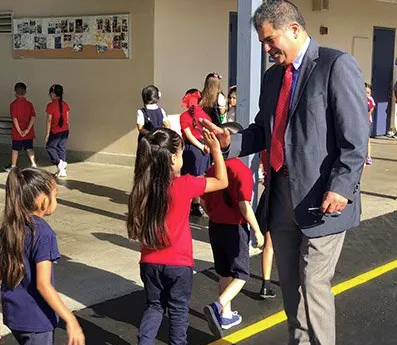Urban school settings present both unique challenges and powerful opportunities for educational leadership. With diverse student populations, complex social dynamics, and resource constraints, urban leaders must navigate environments that demand resilience, innovation, and a deep commitment to equity. Effective leadership in these settings can transform schools into centers of excellence, community engagement, and student empowerment.
Understanding the Urban Context
Leaders in urban schools often serve communities with high student diversity—including a wide range of languages, cultural backgrounds, and socioeconomic circumstances. Many urban schools face higher student mobility rates, underfunding, and infrastructure limitations. Recognizing these realities is essential to designing leadership strategies that are relevant, responsive, and grounded in equity.
Effective urban leadership also requires an understanding of the systemic issues that impact student learning, such as housing instability, healthcare disparities, and community violence. Leaders must work beyond the school walls to advocate for broader supports that influence student success.
Building Trust and Community Partnerships
Strong relationships are the foundation of effective leadership in urban schools. Principals and administrators must build trust with students, families, staff, and local organizations. Leaders who are visible, accessible, and engaged in the school community foster trust and credibility.
Collaborating with local businesses, nonprofits, health services, and faith-based organizations can bring much-needed resources and support to students. These partnerships help extend learning beyond the classroom and promote holistic student well-being. Urban leaders who facilitate wraparound services—like after-school programs, food access, and health clinics—create schools that serve as community anchors.
Culturally Responsive Leadership
Cultural competence is non-negotiable in urban school leadership. Leaders must recognize and honor the cultural assets of their school communities. This includes:
- Promoting inclusive curricula that reflect student backgrounds
- Hiring diverse staff and supporting culturally responsive teaching
- Creating safe spaces for dialogue around race, equity, and identity
Culturally responsive leadership affirms students’ identities and contributes to a stronger, more inclusive school climate. It also empowers educators to adapt instruction, build meaningful relationships, and challenge bias in curriculum and discipline practices.
Instructional Leadership with High Expectations
Urban school leaders are instructional leaders who set high expectations for all learners. They focus on data-informed instruction, frequent classroom observations, and professional learning aligned with student needs. At the same time, they ensure that teachers have the support and resources necessary to succeed.
Equity-driven leaders monitor achievement gaps and implement targeted interventions to support students who are historically underserved. Their commitment to academic rigor is matched by their compassion for each student’s unique circumstances. By combining high expectations with a culture of care, they help students reach their full potential.
Developing and Retaining Effective Teachers
Teacher turnover is a common challenge in urban schools. Strong leaders prioritize teacher support, professional development, and retention by:
- Creating collaborative and supportive work environments
- Providing regular feedback and coaching
- Offering leadership opportunities and career pathways
- Recognizing achievements and listening to teacher voices
When teachers feel valued and equipped to meet their students’ needs, they are more likely to stay and thrive. Urban leaders who invest in teacher growth build a stronger, more consistent school culture.
Advocating for Resources and Policy Change
Urban school leaders must often advocate at the district or state level for equitable funding and policy changes. They serve as the voices of their school communities—highlighting needs, celebrating successes, and pushing for systemic improvements.
By engaging in policy conversations, joining leadership coalitions, and leveraging data to tell their school’s story, urban leaders can influence change that benefits students not just in their schools, but across the system.
Fostering Student Voice and Leadership
Urban leaders recognize students as capable, insightful contributors to school culture and improvement. They create opportunities for student leadership, feedback, and agency—such as student councils, advisory groups, or youth-led initiatives. Empowering students helps build a sense of belonging, purpose, and ownership. When students have a seat at the table, schools become more responsive and dynamic.
Embracing Innovation and Flexibility
Urban school leaders often face complex challenges that require creative solutions. They must be flexible, open to new approaches, and willing to adapt as conditions change. From piloting restorative justice practices to integrating technology in creative ways, successful leaders are problem-solvers who inspire others to think beyond the traditional.
Conclusion
Leadership in urban school settings requires courage, vision, and a deep understanding of community needs. By fostering trust, promoting cultural responsiveness, supporting teachers, empowering students, and advocating for equity, urban school leaders can create transformative learning environments. Their work is vital not only to student success, but to the health and vitality of the broader community they serve. In the hands of committed leaders, urban schools become places of hope, achievement, and opportunity for all.













